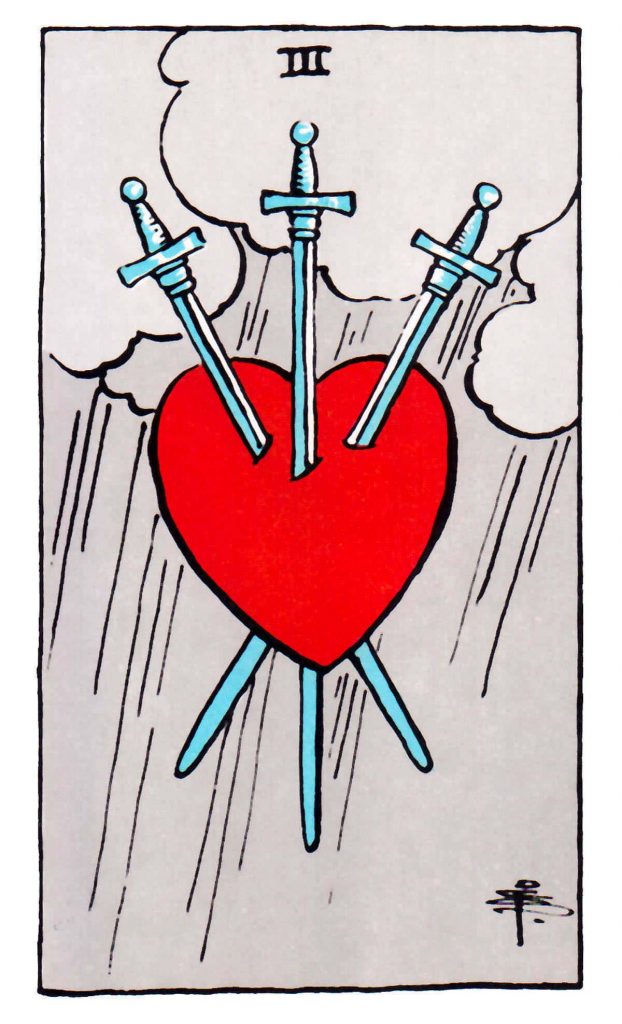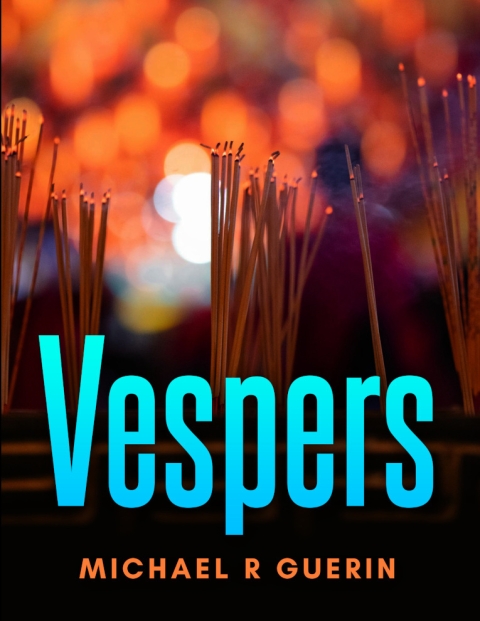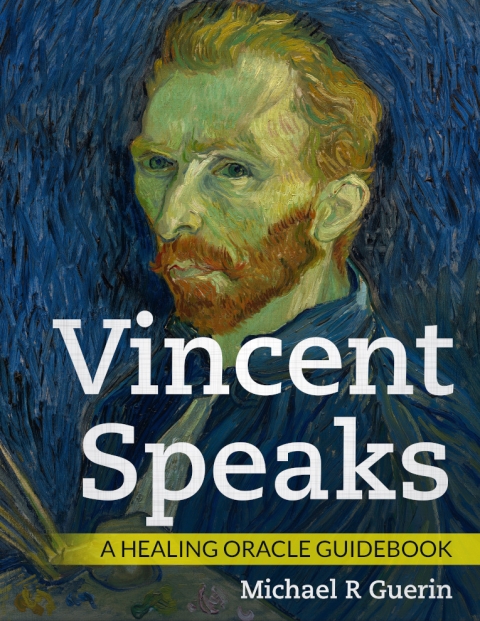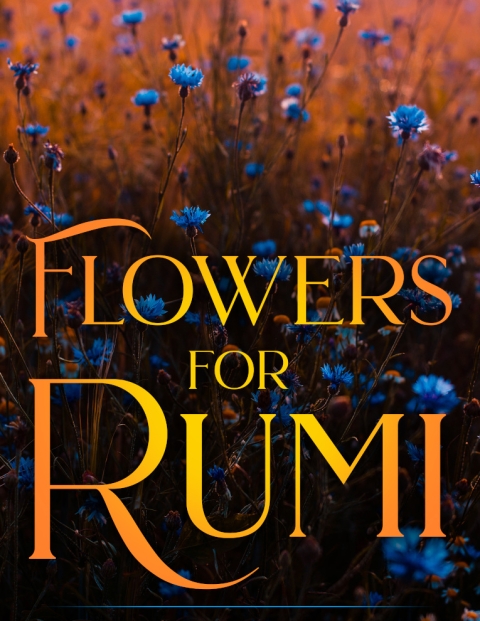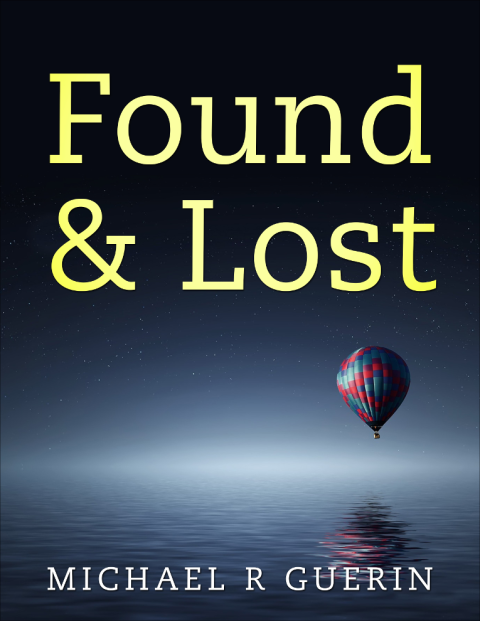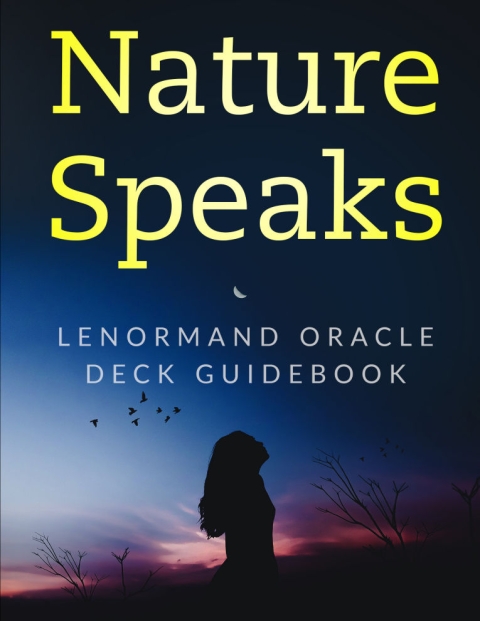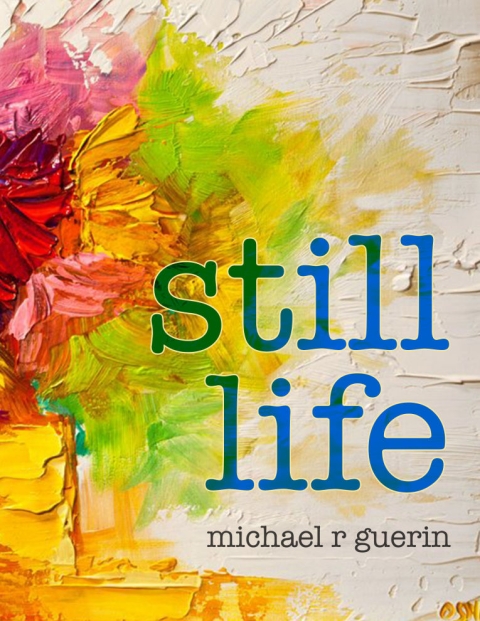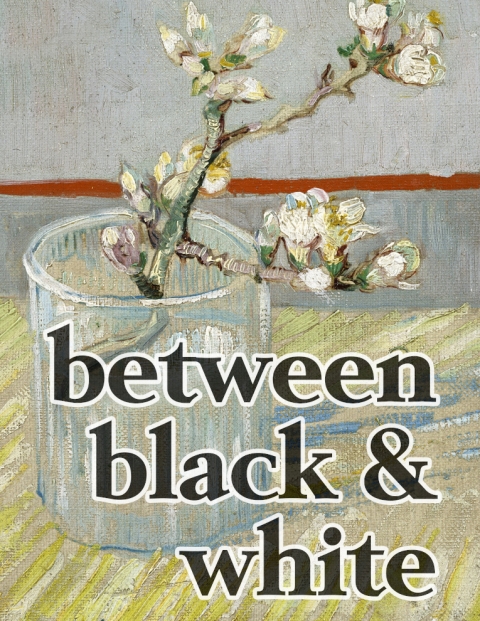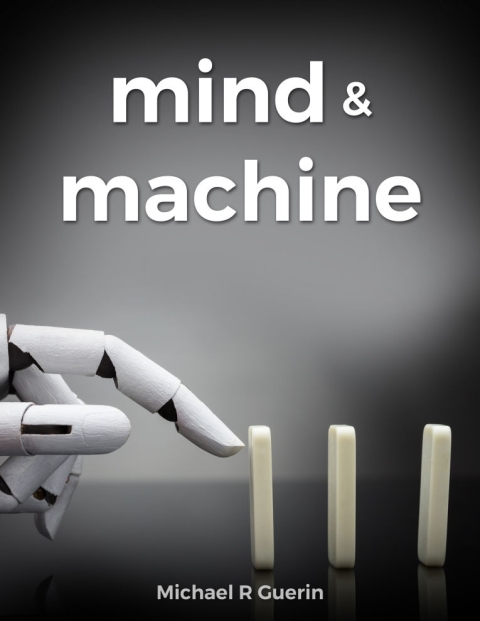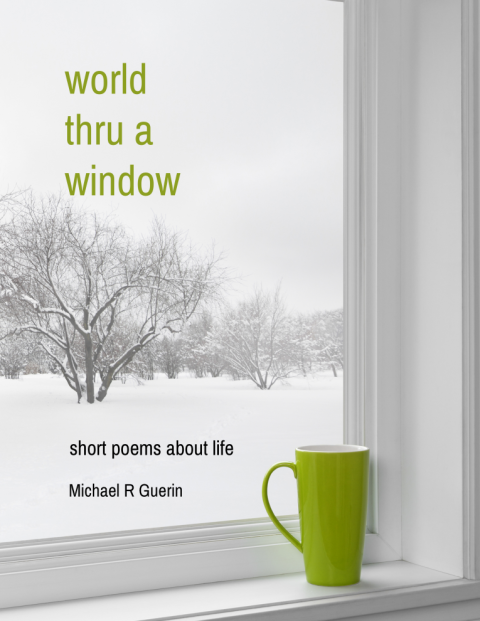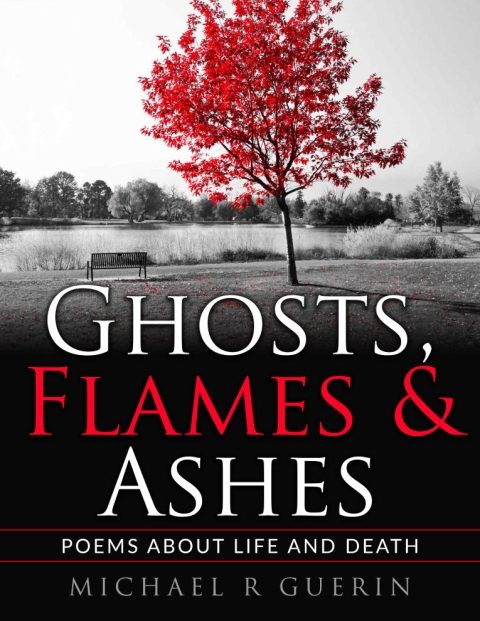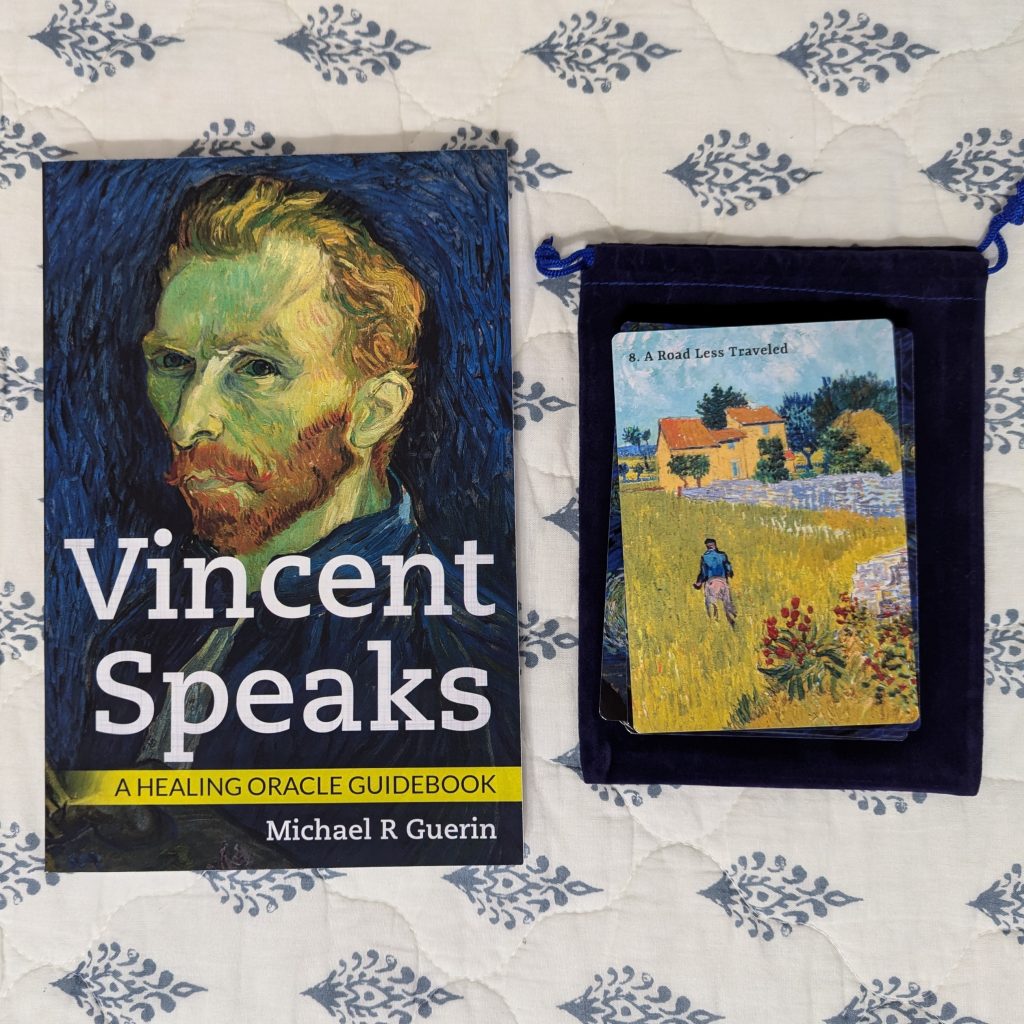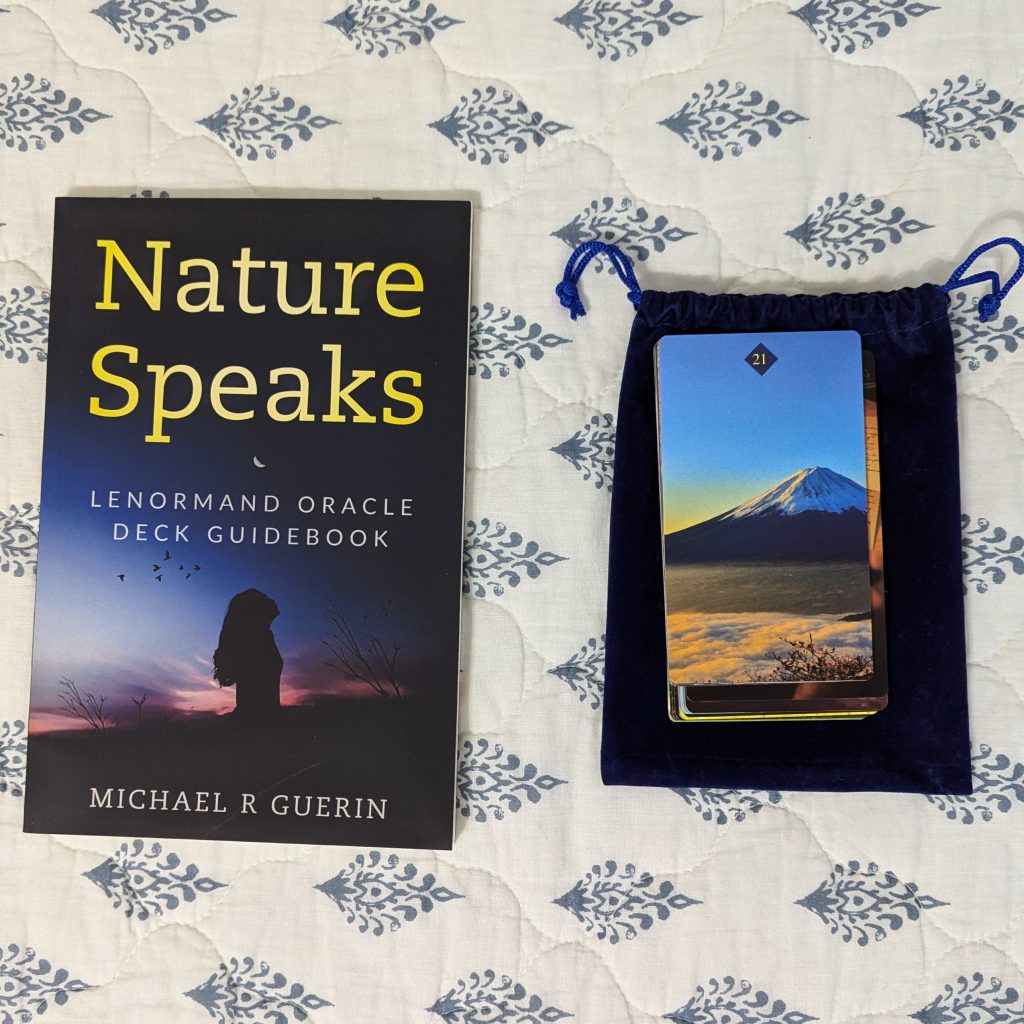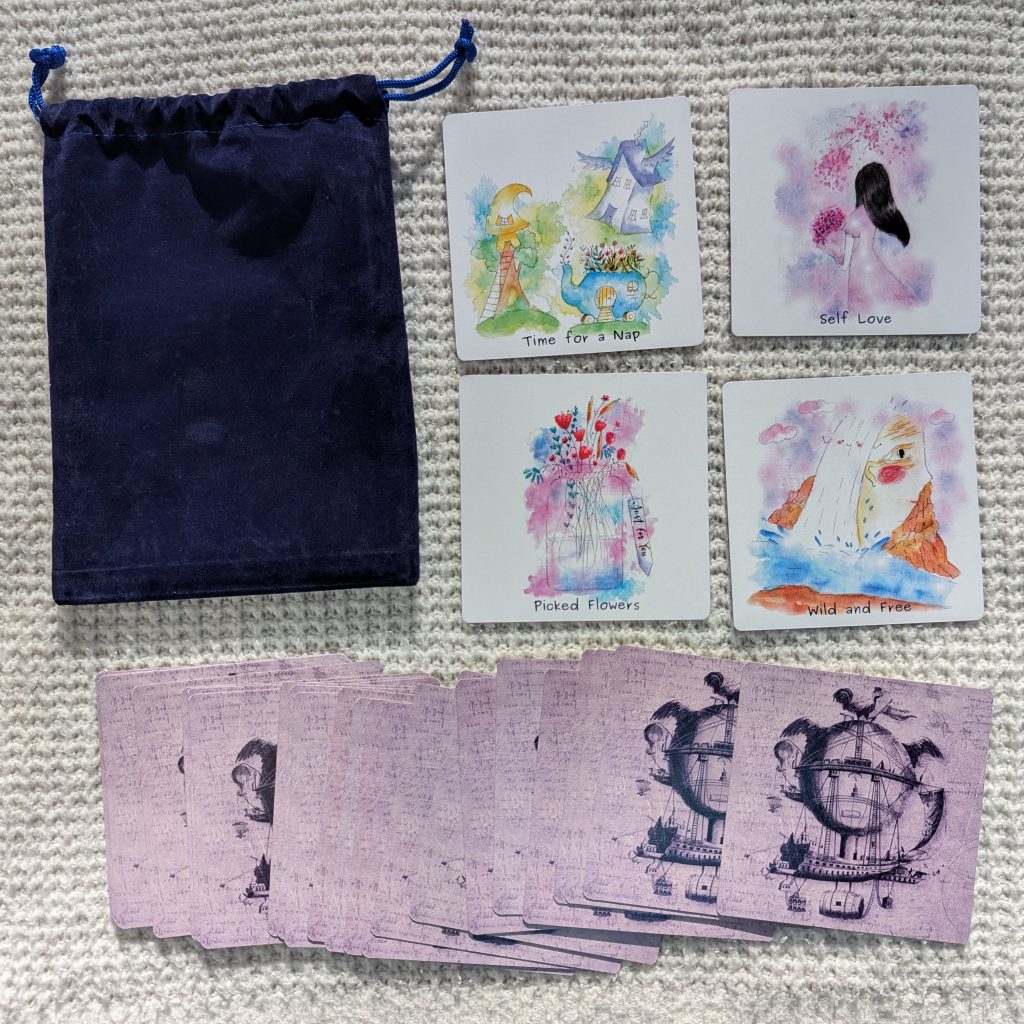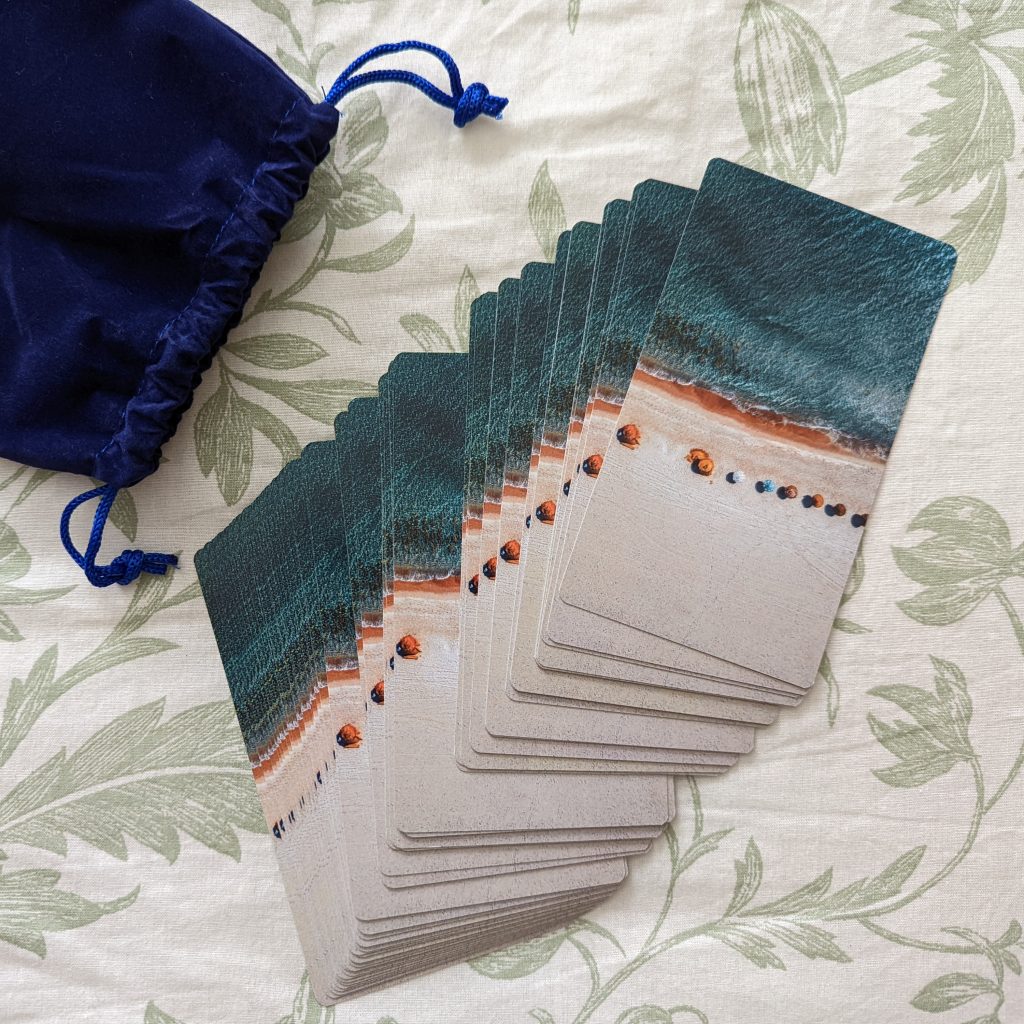Before diving deep, as it were, into a meditation regarding love and language inspired by this particular tarot card I wanted to start by saying that I don’t claim to be a psychic, nor do I own or use a set of tarot cards.
Not that there is a problem with owning or using a deck of these cards — or any other type of oracle cards, for that matter.
In fact, I have benefited from more than one reading by an intuitive (or psychic) who used tarot and oracle cards as part of their “work.” And on every occasion I have found that the cards which were drawn helped to shed some light on a question or issue I was having, and any insights I received inspired by the cards were certainly “true” for my particular situation.
That said, the “reason” for sharing this upfront is because this meditation is based solely on the imagery of the Three of Swords card directly, rather than any prior knowledge of the tarot.
In other words, I’m letting it “speak for itself.”
As for choosing this particular card, recently someone in a Facebook group I’m a member of shared this image with us. And what immediately struck me was the heart and overall “look” of the card, especially as it seemed to relate to an essay I had just started earlier that day regarding love and language.
As you can imagine, the synchronicity of seeing this card beautifully representing some aspects of what I was already thinking about meant that, to me, this wasn’t simply a question of “chance” or “luck.”
It really is amazing how the Universe / Source / God / Love / Spirit works. Because behind every apparent “accident” or proverbial “wrong turn” is sometimes (most times?) the direction that is the best possible one helping you along your journey of realizing your “true” self.
With that in mind let’s take a look at the card…
Iconography and “meaning”
“The reader of poems is asked to consider an image not as an object and even less as a substitute for an object, but to seize its specific reality.”
~ Gaston Bachelard, The Poetics of Space
When looking at the Three of Swords there are five (5) basic elements which form, if you will, the complete “landscape” of the card.
For me, the overall imagery is eye-catching, most notably the pierced red heart which takes center stage. And surrounding this red heart, in no particular order, you’ll also find…
- the number 3
- three swords
- three clouds
- falling rain
Like any work of art these elements are put together for a reason. So let’s explore each feature and what it might mean, one by one, and then we can fit each “puzzle piece” together to uncover what the overall “message” of this card might be.
The number 3
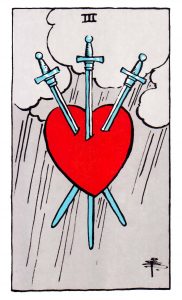 The number three seems an appropriate place to start for a couple of reasons.
The number three seems an appropriate place to start for a couple of reasons.
First, it’s located at the top of the card. Secondly, the three swords stand out as one of the major elements visible on the card’s face.
For me the number three symbolically represents our world. And by “world” I mean the world of our daily experience, the world in which we live in the here and now. So the card starts by emphasizing or focusing on the way things are in our day to day reality.
Why that conclusion?
Because the number three shows up in a variety of ways with respect to our lived “reality.” For example, we experience our world in three dimensions: length, width and height. We experience time (sometimes referred to as the “4th dimension”) as linear with a past, present and future. And there are three “normal” states of matter as well: solid, liquid and gas.
As you can see, our world is experienced, described and understood primarily in terms of three “principles.”
The number three is also found within various religious contexts as well, most notably in Christianity where God is understood as father, son and spirit. And within the “twin flame” or “divine love” community the number three is often seen as signifying the divine masculine, the divine feminine and Source.
So it wasn’t surprising for me to discover that according to the tarot the number three is understood to represent a “unifying force.”
The central heart
In the “west” a red heart has long been THE symbol for love.
That much is obvious. Go inside any mall, shop or restaurant just before Valentine’s Day and you’ll see what I’m talking about, in a thousand different ways. So clearly the red heart in the center of the card symbolizes love.
But for me it is representing something else as well. Something deeper. Below the surface.
Because the heart can also represent that which is most important. For example, consider the expression “get to the heart of the matter.” This typically means to get to the “point” or the essence of something. Note, too, that the heart stands at the center of the card just as our own beating heart is centrally located (more or less) within our body. A beating heart indicates life, just as the red in the card can symbolize blood. Blood represents our life force as it brings much needed oxygen to every part of our body.
So a beating heart is alive, pulsating, forcing blood to flow throughout the body. Which means that the heart symbolizes life, or better yet, the essential “part” of your life — that which is most important to you. That which is “central” to your existence.
Putting this all together what can this possibly mean?
That the most essential aspect of life is love. And that love is the “blood” that “nourishes” us and that which we most need in order to live a happy, healthy, fulfilled and meaningful life here, and now.
Three swords
 Moving on to the swords you’ll notice that they are nearly as prominent as the red heart.
Moving on to the swords you’ll notice that they are nearly as prominent as the red heart.
In fact, all three swords pierce the heart and seem to cross each other in the heart’s center, or “heart of the heart.”
When thinking about swords a number of words or images come to mind: action, conflict, authority, strength but also our thoughts and the mind. For example, in England the tradition of “knighting” someone occurs by laying a sword across someone’s shoulders.
So swords represent authority (of a ruler or monarch who can bestow authority upon another person) but they can also represent ideals or standards, for in being “knighted” one is given a designation or title which essentially “raises” someone to the rank of the “nobility.”
Status and labels are creations of the mind. They have no reality on their own, and rely upon “authority” for their very existence.
Additionally, swords can also represent ideas — either our own thoughts and beliefs or the cultural “norms” of the society in which we live.
Consider the phrase “the pen is mightier than the sword,” which is a reference to strength but also to the similarity between swords and words which can potentially wound another person if not used carefully. After all, words said in anger often “cut” more deeply than any sword and can leave a “scar” as well.
What’s more, note the double-edged blade of the sword.
This represents how a sword can “cut both ways,” symbolizing reciprocity — how I treat others is how I wish to be treated. Or, better yet, how I think about others is a reflection of how I think about myself. And likewise, what people think of me and how they give voice to their thoughts as expressed in conversation can become “internalized” by me and “carried” by me like so much “baggage.”
Also note how no blood flows from the wounds where the heart is pierced.
For me, this is very significant and not simply an oversight or mistake by the artist because it indicates that the “wounds” caused by the swords are internal and invisible to others. The pain you bear from the words of others and from painful ideas about yourself are hidden from view and, therefore, not obvious to the “outside world.”
Swords piercing the heart
 Now, notice the direction of the swords.
Now, notice the direction of the swords.
The one on the left angles in through the heart and comes out on the right hand side, while the one on the right angles through the heart’s center and comes out on the left hand side.
For me, the heart’s center represents the NOW, the present moment.
The sword on the left hand side of the card represents the past. This could mean past expressions of love, past experiences of love or heartbreak. The key is how the sword angles to the right as it passes through the center. This signifies how memories of the past are brought into the present (by you) which affect or influence your future. In other words, past events and experiences of love found and lost, love rejected, and past pain and hurt involving love typically “live” on in the present and get projected into the future.
And by referencing the “past” this could also include unresolved pain from “past lives” as well.
Now, in turning our attention to the sword on the right this represents future expressions of love. However, and this is the key point, the future has no real existence except in our mind. In other words, it is our thoughts about future loves (whether idealized “perfect” lovers or repetitions of past experiences of love) that is signified by the sword.
In other words, your future only lives in your imagination.
Your future, in actuality, is nothing more than a myth, a fantasy, a mirage in the desert fooling you into thinking that just up ahead is an oasis of water. Because the fact of the matter is that the future ONLY exists in your mind.
Because, of course, “it” hasn’t happened yet. And “it” may never come to pass, or occur in the way you envisioned “it” would. But more than this, your future tends to play out according to what has occurred before BECAUSE it is often shaped by your past which is dragged into the present moment and projected out in front of you as the only “possible” future for you or the one you “deserve.”
“‘The now’ is ever existent; even if you escape into future, ‘the now’ is ever present. The present is the doorway to the past. If you do not understand the present now, will you understand it in the future? What you are now you will be, if the present is not understood.”
~ J Krishnamurti, Collected Works
For example, have you ever wondered why some people so soon after divorcing one spouse (or leaving one “significant other”) so quickly land in a relationship with somebody else who, in many ways, resembles the partner they recently separated from?
Simply put, unresolved issues from your past will operate as a “pattern” affecting your future. So in a real way your future is conditioned by experiences from your past.
Unless, of course, you take steps to bring awareness to this fact.
Which is shown by the sword piercing the heart from the right mirroring the sword representing the past on the left. So future pain, future heartache will certainly come about if the past is not addressed in the present moment, in your “heart of hearts” as it were.
Three clouds & falling rain
At first glance it’s easy to overlook the three clouds and rain falling from them.
To be honest I certainly did when I first saw this card. It was only after noticing the black lines of rain that I happened to look “up” and see the three clouds above.
The fact that there are three clouds here mirrors what was said earlier about the number three. But as for their meaning, for me it symbolizes universality. Think of it this way, we all live beneath the same sky. So the clouds represent that whatever “lessons” or “truth” this card is depicting applies to all people and is universal in scope for all of us living here and now.
As for the rain, here are some interesting quotes I found…
“Some people feel the rain. Others just get wet.”
~ Bob Marley“Rain showers my spirit and waters my soul.”
~ Emily Logan Decens“Rain is not only drops of water. Its the love of sky for earth. They never meet each other but one sends love this way.”
~ Unknown
And finally, I’ll leave you with one more which applies to the universal “theme” of this card (and which happened to be the first quote that came to mind when I saw the rain)…
“But I tell you this: Love your enemies, and pray for those who persecute you. In this way you show that you are children of your Father in heaven. He makes his sun rise on people whether they are good or evil. He lets rain fall on them whether they are just or unjust.”
~ Matthew 5:44 – 45
Though I’m not a Christian (or “belong” to any religion, for that matter) this passage sums up so much of what we have already discussed with respect to reciprocity, love and universality.
So rain, as life giving water, makes all things new.
It is cool, refreshing, and available to all. It washes you clean and waters the earth. Falling from the clouds above, like a gift from heaven, it can represent grace or love available to all.
Which means, for me, that you are not alone or without support on your life’s journey toward true love.
Meaning, context and “truth”
Having gone through each individual element of the card what does it all mean for us? In other words, is this meditation on the Three of Swords true?
Well, questions about “truth” as THE absolute “standard” tend to come up when people want (need? crave?) certainty.
And people typically “demand” certainty when they are fearful. Not fearful of specific “things” in their life but fearful in general, of experiencing that fear which arises from the uncertainty of living in a constantly changing world. Faced with insecurity the desire for having something “fixed” that you can depend upon, something “rooted” in tradition as a “place” from which you can survey the world, makes sense.
After all, it’s “normal” to want to feel safe and secure.
That’s why people tend to seek refuge in “truth” in much the same way as if they were seeking shelter indoors from a coming storm moving in quickly from the horizon.
But the problem with taking refuge in “truth,” or anything else for that matter, is the very real issue of stagnation. Because once you have a “fixed” frame of reference from which you can survey the world you tend to become closed off to other viewpoints or ways of looking at something. Once you claim to “know” something you are forever rooted in the past, anchored in place by that “piece” of knowledge by virtue of having “accepted” something as forever true.
But life, as they say, waits for no one.
Nor does love.
So if you are asking yourself whether or not these words are true, I’ll say that they were written in “truth.” I actually wrote them. And the words I chose to make these points came “from the heart.”
And strange as it may seem to you, the basis for sharing these words was not to convince you of anything, or get you to see things from my perspective. There really was no other motive at all other than a desire to share with you an honest reflection regarding the images visible on the card itself. Taking a look together, if you will, and thinking about what the card might be “saying” to us.
But it’s also clear that questions of “truth” really involve what resonates for you. What “feels” true for you in your heart. Or gut.
In other words, as you read these words what struck a chord with you? What seemed true or made sense to you as you progressed through this meditation? What points specifically caused you to reflect on your own life allowing you to see something “new” in you that you might have missed before?
Because ultimately that’s the point.
This “reflection” is really nothing more than a mirror in which you can (hopefully) see your own reactions to what is written, and shared, here. But what you ultimately see in the reflection (if anything at all) will be your “face” — and yours alone.
Because truth is really nothing more than a process of self discovery, from moment to moment.
After all, we really only know ourselves in relationship. It is through relationship that we see the truth about ourselves reflected back to us in our reactions to what others say to us, how they “trigger” us and, in turn, how we respond to them.
For the truth of the matter is that we are all “hungry” for love.
And I’m talking about true Love, deep and meaningful Love, and not the kind of “love” that gets used about everything under the sun, from pizza to dish soap or your favorite movie to a TV show. We all, it seems, crave love and acceptance on a level that, frankly, frightens many of us.
Because love changes everything.
What’s more, this inner craving which drives us or haunt us is not something that has been modeled for us very well by others, either.
In other words, instances of “true” love in action seem to be frightfully elusive occurrences for us to witness, first hand. Expressions of “love” are many. But examples of LOVE in word and deed are, sadly, more rare than you might care to imagine or realize.
The language of “love”
“A main source of our failure to understand is that we do not command a clear view of the use of our words.”
~ Ludwig Wittgenstein, Philosophical Investigations
We learn the meaning of words from within the context of usage.
How we understand and, in turn, successfully employ language to express ourselves with others is rooted in the everyday usage of the words themselves. For what a word means is how we all agree to use it in order to communicate some “message.”
And in most cases commonplace usage is good enough to “get the job done,” so to speak.
If I ask you to get me a cup of coffee, for instance, you understand the words “cup” and “coffee” and also understand the nature of a command or request, as in “please bring me some coffee in a container so that I may drink some.” What’s more, I would KNOW for certain if you understood what I meant by how you REPLY. If you yell out, “get your own damn coffee” or if you bring me a cup of coffee a few minutes later then it would be obvious to me whether or not you understood my request.
So, our use of slang or “short-hand” language typically isn’t a problem for the vast majority of our conversations regarding daily life because we have all been “educated” for many years about how language generally “works” through our successful use of words in daily interactions with other people. And any “mistakes” in usage typically get cleared up very quickly.
But when we attempt to talk about something “deeper” we run into all sorts of language “problems.”
Problems about meaning.
And nowhere in our typical usage of words is this problem more apparent than with the word “love.” Because what we “mean” is rooted in “why” we choose certain words over others.
For example, the word “love” is used in all sorts of ways that literally have nothing to do with love but have everything to do with desire and pleasure. If I say “I love bacon” or “I love the Mets” you understand, rightly, that in the first case I happen to really enjoy bacon (I actually don’t), and in the second example that I happen to be a fan of a particular New York baseball team (I’m personally not). And if you were unfamiliar with the food “bacon” or the team called the “Mets” you could ask me a question to further clarify my message, such as “what do you love?” and I would then know that you need more information about the “object” of my “affection.”
But in no way would you think that I truly, deeply “love” a food item or sports team. You would know that I mean “really like” or “like it very much.” In other words, the context of usage helps you to know what I really “mean” when I used the word love, in this case as a superlative.
With me so far?
The problem arises, however, when we start using the word “love” within the context of inter-personal relations, i.e. in our relationships with other people. Because in many cases use of the word “love” has nearly everything to do with expressions of desire or pleasure and nothing to actually “do” with “real” love. For example, people generally use the word “love” to mean, similar to the examples above, “really like you” or “enjoy spending time with you” or “like you as a friend.”
So use of the word “love” across many different contexts often leads to a lack of clarity regarding the specific meaning of the word itself.
In fact, many times further clarification is required despite the context of usage. And yet, it’s quite common for us to behave AS IF the context provided sufficient “cues” for us to discern the true meaning and that we understood what the person meant when he or she used the word “love” in conversation, when in fact we have not.
We simply act, and therefore respond, as if we “got it.”
To further complicate matters, the traditional “paradigm” of social interaction that most people operate from is, for lack of a better word, a type of bartering arrangement. We trade “niceties.” Just think of the expression, “one hand washes the other” or “I’ll scratch your back and you scratch mine.” I’m sure there are dozens (or hundreds?) more examples just like these scattered across every language and culture. And just like the two examples cited above, what is really going is the fact that just about every human relationship is operating on the basis of quid pro quo.
Essentially, I smile at you and you smile back. I say “hello” and you say “hello” in return. And everything progresses along quite nicely until I smile and say “hello” and you don’t respond.
What happens next?
In most cases people get upset. They don’t give the person who didn’t respond the benefit of the doubt that maybe he or she missed your “signal” and failed to reciprocate because, perhaps, their mind was elsewhere. So a failure to reciprocate is why people most often get frustrated with another person in relationship. To put it simply, we become angry when someone doesn’t respond in the way which we “expect” them to based on an unstated yet universally accepted principle of reciprocity.
So what happens if you fail to respond as expected too many times in a row? You’re considered (i.e. labeled) a jerk, or something far worse.
Now, it’s quite possible that in the course of our everyday relationships, say at work or at school, this “quid pro quo” arrangement works out nicely. After all, you don’t want to “waste your time” being nice to someone who is unwilling or unable to be nice in return, right?
But the fact of the matter is that all these informal arrangements and agreements condition us to think about relationships in a certain way. And, therefore, act a certain way.
Which is precisely why (and when) the problem arises.
Because at some point you’re going to run into (or have already, multiple times) those skilled “players” who understand the rules of the “game” and leverage the “Law of Reciprocity” for their own advantage. This is especially true when we become older and engage in relationships where the possibility of consensual sex is involved and one partner seeks sexual gratification “at any cost” through the “trusted” gateway of “love.”
In fact, this is the very reason why I reacted so strongly, and negatively, to anyone using the word “love” in my presence once I became a teenager.
Why?
Not because I thought or believed that I didn’t deserve love.
Rather, I felt very strongly that the vast majority of the time people USED the word in order to be manipulative. That they were only saying THIS particular word in order to get a response from me that they wanted by forcing me to reciprocate with the SAME word. In other words, that their motive for using the word “love” was only so that they could coerce me to say, in return, “I love you” even if I didn’t feel that way or didn’t want to say it.
And before you dismiss this as some sort of crazy adolescent reaction consider the following… if someone says that they love you it’s not a statement that is easy for you to ignore.
What’s more, there are precious few responses that are deemed “socially acceptable” in return for an “I love you” thrown your way, whether it was heartfelt or not. After all, you can’t simply respond with a “that’s nice” or “thank you” because these responses seem completely inadequate to the apparent emotional “weight” of an uttered “I love you.”
But it seemed to me, back then, that most people used the word with no real feeling behind it.
In other words, so many “I love yous” seem to be said for all the wrong reasons, tossed around by people with ulterior motives or to excuse their bad behavior or by those simply pretending to have feelings for you when they actually don’t and simply want to “get” something from you or force you to respond in a certain way.
Sadly, this seems to be the “typical” use of the word “love” in our everyday language, rooted in the Law of Reciprocity.
And the “problem” goes deeper than this as well.
It’s amazing to me how easily “seduced” we are by words. After all, the easiest thing in the world to do is to “pay someone a compliment” (notice the hidden reciprocity in the expression?), whether you mean it or not. And yet, we do this all the time, falling for sweet words rather than being attentive to someone’s actions instead.
So that’s one part of the problem.
The other part is this — expressions of “true” love are not reducible to mere words. What we lack is a nomenclature, a way of talking about and expressing unconditional love or divine love at all.
This problem, as discussed above, has its roots in our sloppy (and traditional) usage of the word in everyday speech patterns. We have all used the word too many times in contexts where it clearly doesn’t apply or belong to such an extent that the word has lost all “real” meaning for us.
In other words, we’ve used this particular word as a superlative to emphasize a range of emotions and desires (i.e. “love that”) where it clearly doesn’t belong so that the word “love” now requires the use of an adjective to clarify its true meaning. We are typically forced into placing some other word before “love” in order to differentiate it from everyday, ordinary usage.
And this fact shows me that use of the word “love” by itself in contexts of real or deep emotion is seen as insufficient to adequately communicate what we feel. Because when we REALLY want to share what the essence of the word “love” means we are forced to add words like “divine” love or “unconditional” love or “true” love, AS IF we all agree or recognize that somehow the word “love,” all on its own, isn’t good enough anymore or clear enough to convey our TRUE message.
That a “naked” I love you is somehow inadequate or no longer up to the task, forcing us to “dress it up” in order for the word to have any meaning anymore.
But shouldn’t this one word, LOVE, be able to stand alone? On its own? Because by saying “divine love” or “unconditional love” aren’t we really just using a tautology? Because LOVE is, essentially, divine.
And by NATURE unconditional.
After all, what the hell would “conditional” love look like, anyway? How is love “conditional” upon something else, like “I love you, on the condition that you love me in return” or “I love you when you behave the way I like.” And yet, this is how we speak.
This is how we act, all the time — quid pro quo.
Love means that I love you exactly for who you are and not for what you DO for me, or how you make me FEEL, or for WHAT you can become after I mold you into some pattern or image that I have of an ideal lover. That’s not love at all, but the pleasure principle in action using words as tools of manipulation.
And love doesn’t mean that I “accept” you for who you are either, because acceptance implies judgment. Rather, love EMBRACES who you are precisely AS you are and simply for WHO you are without any judgements or appeals to “ideals” ever entering into the picture.
So what’s left to say, or do, in relation to the word love?
And of our desire to communicate that “something” which is beyond a mere “feeling” for another person TO that person?
“Whereof one cannot speak, thereof one must be silent.”
~ Ludwig Wittgenstein, Tractatus Logico-Philosophicus
Sit in silence and show love. Actually “be” loving toward that special him or her.
Because love isn’t a “thing” like some possession you own that you can “give” to another person and “receive” in return. It’s a VERB. An ACTION. An ENERGY that moves, vibrant and alive. So BE that energy. That vibration. For once in your life just shut your mouth and be attentive to the person you LOVE, and EMBODY love in their presence. Not only one time. Not only when it’s convenient. Not only when you want something from them. Not only when they are nice to you. But all the damn time.
Trust me… if you do this consistently your beloved will see your actions and know that your love is “true.” And even if he or she doesn’t that’s okay, too, because “true” love doesn’t keep score or ask a single thing in return.
Otherwise it’s not love.
No matter how many adjectives you pile up in front of it.
